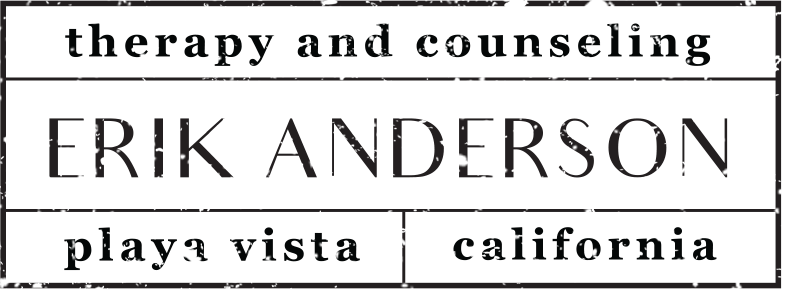Therapy for OCD
OCD can feel like being tuned to a radio station that you can’t switch off or turn down. Disturbing images, intense worries, or unrelenting arguments barge in without permission, and repeat like a broken record. OCD attacks the subjects we feel the most vulnerable and ashamed about, making them difficult to address so we privately try to do what we can to prevent or repress the thoughts.
To break free from this relentless anxiety, you may feel compelled—almost possessed—to perform certain actions or mental rituals. Sometimes these are visible behaviors: washing your hands until they’re raw, checking door locks repeatedly, arranging items in a precise order. Other times, they’re hidden mental maneuvers: repeating certain words in your head, counting to a specific number, mentally reviewing events to ensure no mistakes were made, or arguing internally in a desperate attempt to feel resolution.
The good news is that OCD is treatable and you can get unstuck, regain control, and feel better.
Understanding Your OCD Symptoms
Most people with OCD are aware that their obsessions feel irrational or excessive. They also tend to recognize that their ruminations and compulsive behaviors don't effectively manage their anxiety in the end. Yet knowing that something is irrational doesn’t simply make it disappear. Instead, seeing the pattern so clearly—and still feeling unable to break it—can lead to feelings of frustration and shame.
Obsessions are intrusive, persistent thoughts that come loaded with intense, uncomfortable emotions, making them hard to tune out or shut down. Some people find themselves fixated on just one topic, but it’s also common for the target of these obsessions to shift over time—leaping from one worry to another as life circumstances change.
Compulsions can show up in many forms, but they share a few traits: they’re excessive, repetitive, and tend to eat up a lot of time. It feels like you just have to do them, whether you’d like to or not. There’s often the hope they’ll provide some protection or relief but in the end they don’t offer real satisfaction.
OCD can take on many subtypes, including:
Contamination OCD: Preoccupation with the fear of illness or germs harming you, people important to you, or innocent people around you. Common compulsions include excessive washing, cleaning, or avoiding things that feel “contaminated.”
Harm OCD: Intrusive and distressing thoughts about violence towards yourself or others underpinned by a deep fear that you’ll somehow act on these impulses or fail to prevent a disaster.
Sexual OCD: Unwanted sexual thoughts and doubts about one’s sexuality or orientation focused on what those thoughts mean. Compulsions often involve mentally ‘testing’ your reaction to certain sexual thoughts, constantly seeking reassurance from others, or comparing your feelings against what you believe they ‘should’ be.
Relationship OCD: Persistent doubts about whether your relationship is “right,” ongoing comparisons to other couples, constant checking of your own feelings, or repeatedly seeking reassurance from your partner.
Like most mental health challenges, OCD isn’t neatly boxed in—its symptoms vary wildly from person to person. If you’re stuck battling repetitive thoughts and behaviors, know that professional treatment is available and real recovery is absolutely possible. You don’t have to keep living under OCD’s spell.
How Is OCD Treated?
The most proven way to tackle OCD is through Exposure and Response Prevention (ERP). In simple terms, this means gradually facing the very fears you’ve been avoiding, while learning to resist the old habits that used to temporarily soothe your anxiety. Over time, this process rewires your brain’s alarm system—reducing the grip obsessions and compulsions have on your day to day life.
It’s also common for people with OCD to have other concerns like depression, generalized anxiety, or PTSD. That’s why it’s important to start with a thorough overview of your symptoms, so we can tailor a plan that addresses your overall wellbeing—not just a piece of it.
Many clients are surprised to learn that developing a more accepting attitude toward OCD can actually lessen its impact. It may feel counterintuitive: we’re used to fighting uncomfortable thoughts, not letting them be. But acknowledging they exist—without giving in to shame or panic—helps them fade faster than endless mental battles ever could.
We also want to be mindful of what makes symptoms worse. This requires understanding your triggers and assessing the repetitive behaviors or mental rituals that attempt to ease the anxiety. It’s not uncommon for OCD symptoms to feel as though they are worsening when you start treatment. But, over time, with trust, support, and the ability to integrate new ways of coping, you will learn how to replace certain responses with more adaptive ones.
Treatment for Obsessive Compulsive Disorder in Los Angeles, CA
While OCD is fairly common, not every therapist specializes in it. The reality is, addressing OCD effectively often calls for a higher level of expertise. I’m committed to offering that specialized care so you can finally experience real relief and a noticeable boost in your quality of life.
In my practice, I use a blend of Exposure and Response Prevention (ERP) and talk therapy. Together, we’ll not only target and ease your OCD symptoms but also work on developing a healthier relationship with them—an approach that often diminishes their power and helps you feel more confident as you move through your day.
For adults seeking treatment, I offer in person sessions in West Los Angeles and virtual therapy throughout California. When you’re ready to break free from the cycle of obsessions and compulsions, reach out and let’s get started.

